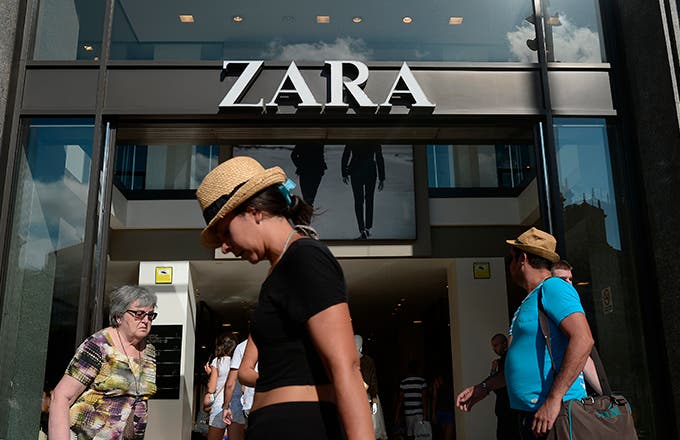
Zara is a fast fashion retailer that has achieved staggering success since its inception in 1975. Compared to its Zara peers in retail, Zara has one practice that helps contribute to its competitive advantage: an agile project management oriented supply chain.
AGILE PROJECT MANAGEMENT
Broadly, agile project management is based on the 12 principles brought forth by the agile manifesto. This manifesto forms the basis for a project management theory that focuses on iterations, adaptations, collaboration, and constant improvement. As opposed to many other project management designs, agile project management is a non-linear approach to problem solving that hopes to provide flexibility and adaptability, without having to go back to the start with each iteration undertaken.
While originally developed for software and technology problem solving, agile project management has gained acceptance in the supply chain industry for its ability to help companies adapt to market dynamics. In the same way agile project management helps a software company develop non-linear solutions to problems, agile project management allows a supply chain to creatively adapt to market evolutions without having to disrupt supply chains from start to finish. Zara has used this agile supply chain to earn a distinct and unmatched advantage in retail. (For more, see: How Agile Project Management Works.)
ZARA
Zara is one of the main brands under the Inditex umbrella. Inditex, which operates seven other retail brands in addition to Zara, has become the world’s largest clothing retailer. In 2013 Inditex’s 6,009 stores had sales of almost $21.4 billion (of which Zara accounted for over $11 billion). Zara specifically has over 2,000 store locations in over 88 countries (in addition to an e-commerce business). Zara regularly competes against Gap (GPS), H&M, and Uniqlo. The agile project management that Zara practices gives it an edge over these competitors.
TYPICAL RETAIL MANUFACTURING
Before analyzing Zara’s agile supply chain, a typical fashion retailer’s manufacturing model must be understood. A common production cycle for a retail seller is as follows: designs are made in house for an upcoming season, designs are outsourced for production in low labor cost countries, and goods are shipped for new seasonal assortments to stores, with pre-scheduled shipments already in place for replenishment. For this production cycle to work, a retailer will produce 80% of its goods up front, allowing for only 20% variability to address changes in buyer preferences. Zara operates outside of this norm, in part because its agile supply chain allows it to. (For an overview of retail, see: The Industry Handbook: The Retailing Industry.)
HOW ZARA MANUFACTURES
Zara’s production schedule differs strongly from the average retailer's schedule, seen above. For Zara, each production cycle pre-manufactures only 50-60%. And instead of sending large shipments of initial seasonal stock to each store, Zara sends small shipments up front, with no pre-scheduled replenishment, but with the ability to re-stock each store twice a week. Zara clearly operates differently from most retailers, and the flexibility and agility provided to it by agile project management define its production and distribution methods.
Through store management and sales feedback, Zara learns which of its style trends are best sellers for every season. Zara is then able to reap the benefits of its manufacturing and design structures. Because Zara only manufactures 50-60% of a new season ahead of schedule, it can prioritize only the trends that are selling successfully and not waste manufacturing costs on products that aren't meeting expectations. Zara’s agile distribution network, which provides smaller, more frequent shipments than its major competitors, is then able to supply stores with only the products a store requests as main sellers. This model of delivery allows a store to cut down on slow selling inventory, reduce markdowns, and maintain higher margins.
THE BOTTOM LINE
Through its agile project management, Zara has emerged a leader in the retail industry. Zara’s supply chain response time measures at approximately two and a half months, compared to an industry average of between five and seven months, and its average markdown percentage is approximately 15%, compared to competitors' 35%
No comments:
Post a Comment